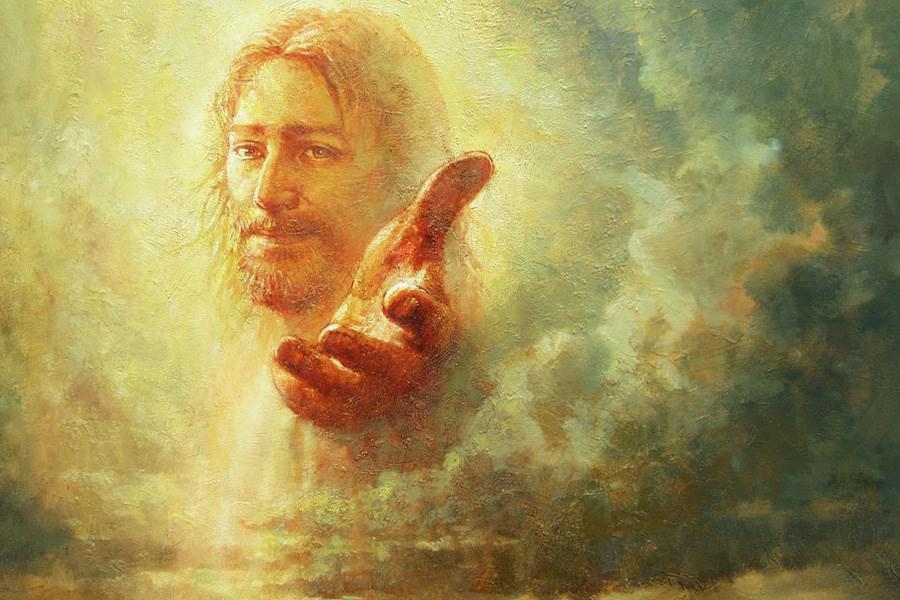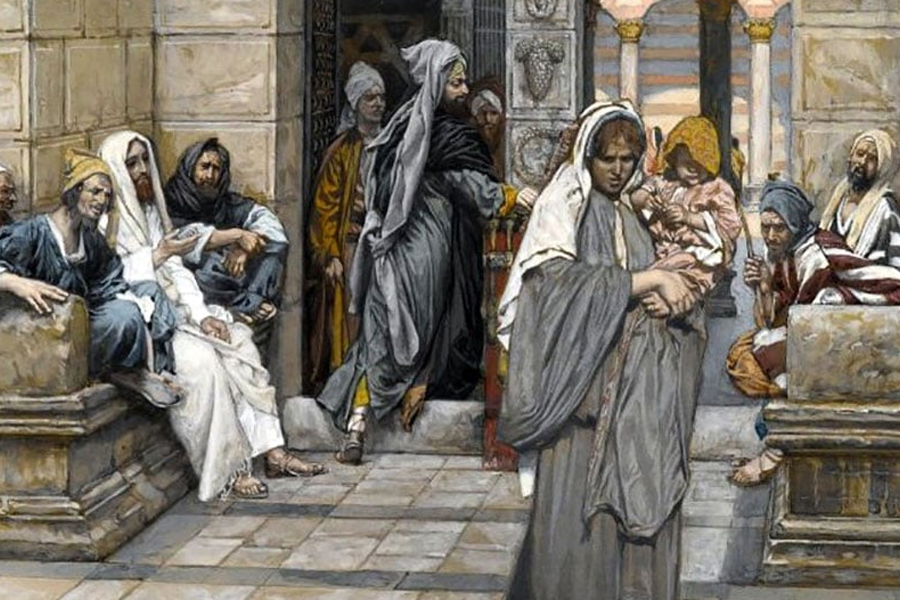St. Francis of Assisi Weekly Reflections

The Son of Man Coming in the Clouds
11-17-2024Weekly ReflectionWe Celebrate Worship Resource, Vol. 49, No. 1The stars have had a special symbolic significance going back to the beginning of our faith. God told Abraham to look at the stars in the night sky, promising him that his descendants will one day be as numerous. Today we hear that in Daniel’s prophetic vision, “those who lead the many to justice shall be like the stars forever” (Daniel 12:3). The uncountable multitude of souls guiding us to justice from their eternal home recall the uncountable multitude of stars Abraham and Sarah glimpsed in the heavens. Jesus told his disciples that while he was in the world, he was the light of the world. It is up to us now to reflect the light of Christ to the world, to be beacons for others, to make the works of God visible. One day the Lord will return to gather his elect and bring them home to the Father. May his warning that no one knows when this will happen spur us to action, to provide light to our world now, whether the world ends soon or far, far in the future.
How do you reflect the light of Christ in the world? What more can you do to shine that light in the darknesses around you?
El Hijo del Hombre viene en las nubes
Las estrellas han tenido un significado simbólico especial desde el comienzo de nuestra fe. Dios le dijo a Abraham que mirara las estrellas en el cielo nocturno, prome éndole que un día sus descendientes serían tan numerosos como ellos. Hoy escuchamos que en la visión profé ca de Daniel, “los que conducen a la mul tud a la jus cia serán como las estrellas por siempre” (Daniel 12:3). La incontable multitud de almas que nos guían hacia la jus cia desde su hogar eterno recuerda la incontable multitud de estrellas que Abraham y Sara vislumbraron en los cielos. Jesús dijo a sus discípulos que mientras él estaba en el mundo, era la luz del mundo. Ahora nos toca a nosotros reflejar la luz de Cristo al mundo, ser faros para los demás, hacer visibles las obras de Dios. Un día, el Señor regresará para reunir a sus elegidos y llevarlos a casa con el Padre. Que su advertencia de que nadie sabe cuándo sucederá esto nos impulse a la acción, para brindar luz a nuestro mundo ahora, ya sea que el mundo termine pronto o muy, muy lejos en el futuro.
¿Cómo reflejas la luz de Cristo en el mundo? ¿Qué más puedes hacer para que esa luz brille en las nieblas que te rodean?

She Contributed All That She Had
11-10-2024Weekly ReflectionWe Celebrate Worship Resource, Vol. 49, No. 1We just heard Jesus teach what love of God and love of neighbor are the most important of all God's commandments. Today we meet two people who have taken this to heart. Each is a widow. Each sacrifices her own well-being to give all that she has to God and neighbor. In the first reading, a widow has hardly anything left to give her young son. She expects that they will soon die of hunger. But she gives the last of her bread and water to this stranger, this man of God, rather than kingly telling him no, that she can't spare any of what little she has left. In the Gospel, a widow contributes two coins to the temple treasury-all she had-as an offering to God and to those in need. The incredible sacrifice each woman makes would look foolish to many. But note that not long after this incident, Jesus will look foolish to many, sacrificing his life on the cross for our salvation. The two selfless women sacrifice all that they have as well, not knowing how they will survive themselves, but believing that generosity to God and to neighbor is more important.
How generous are you? How can you bring yourself to be more generous to God and others?
DIO TODO LO QUE TENIA
Acabamos de escuchar a Jesús enseñar que el amor a Dios y al prójimo son los mandamientos más importantes de Dios. Hoy nos encontramos con dos personas que se lo han tomado muy en serio. Ambas son viudas. Cada una sacrifica su propio bienestar para dar todo lo que ene a Dios y al prójimo. En la primera lectura, una viuda no ene casi nada para darle a su hijo pequeño. Ella espera que pronto mueran de hambre. Pero ella le da lo úl mo que le queda de pan y agua a este extraño, este hombre de Dios, en lugar de decirle majestuosamente que no, que no puede prescindir de nada de lo poco que le queda. En el Evangelio, una viuda contribuye con dos monedas al tesoro del templo, todo lo que tenía, como ofrenda a Dios y a los necesitados. El increíble sacrificio que hace cada mujer parecería tonto para muchos. Pero note que no mucho después de este incidente, Jesús parecerá tonto para muchos, sacrificando su vida en la cruz por nuestra salvación. Las dos mujeres desinteresadas también sacrifican todo lo que enen, sin saber cómo sobrevivirán, pero creyendo que la generosidad hacia Dios y el prójimo es más importante.
¿Qué tan generoso eres? ¿Cómo puedes ser más generoso con Dios y con los demás?
Giving From Our Need
11-10-2024Question of the WeekReading I: 1 Kings 17:10-16 • Elijah and the Widow
Reading II: Hebrews 9:24-28 • The Sacrifice of Jesus
Gospel: Mark 12:38-44 • Hypocrisy of the Scribes, and the Widow’s Mite
Key Passage: Jesus said, “Truly I tell you, this poor widow has put in more than all those who are contributing to the treasury. For all of them have contributed out of their abundance; but she out of her poverty has put in everything she had, all she had to live on.” (Mark 12:43–44) Adults: What are you willing to give out of love for God that would be a hardship for you? Kids: What would you be willing to give up for someone else?
DAR DE NUESTRA NECESIDAD
Lectura I: 1 Reyes 17:10-16 • Elías y la viuda
Lectura II: Hebreos 9:24-28 • El sacrificio de Jesús
Evangelio: Marcos 12:38-44 • La hipocresía de los escribas y la ofrenda de la viuda
Pasaje Clave: Jesús dijo: “Les aseguro que esta viuda pobre ha echado más que todos los que contribuyen al tesoro. Porque todos han echado de lo que les sobra, pero ella, de su pobreza, ha echado todo lo que tenía, todo su sustento”. (Marcos 12:43-44)
Adultos: ¿Qué estás dispuesto a dar por amor a Dios que sería una dificultad para ?
Niños: ¿Qué estarías dispuesto a dar por otra persona?
The Greatest Commandment
11-03-2024Question of the Week Reading I: Deuteronomy 6:2-6 • The Great Commandment
Reading II: Hebrews 7:23-28 • Jesus, the Eternal High Priest
Gospel: Mark 12:28b-34 • The Greatest Commandment
Key Passage: [The scribe] asked him, “Which commandment is the first of all?” Jesus answered, “The first is, ‘Hear, O Israel: the Lord our God, the Lord is one; you shall love the Lord your God with all your heart, and with all your soul, and with all your mind, and with all your strength.’” (Mark 12:28–30)
Adults: Why is love of neighbor as important as love of God?
Kids: When do you show that you love God and your neighbor with your whole heart?
El Gran Mandamiento
Lectura I: Deuteronomio 6:2-6 •El Gran Mandamiento
Lectura II: Hebreos 7:23-28 • Jesús, el Sumo Sacerdote Eterno
Evangelio: Marcos 12:28b-34 • El Gran Mandamiento
Pasaje Clave: [El escriba] le preguntó: “¿Cuál es el primer mandamiento de todos?” Jesús le respondió: “El primero es: ‘Escucha, Israel: el Señor nuestro Dios, es el único Señor; amarás al Señor tu Dios con todo tu corazón, con toda tu alma,con toda tu mente y con todas tus fuerzas’” (Marcos 12:28–30)
Adultos: ¿Por qué el amor al prójimo es tan importante como el amor a Dios?
Niños: ¿Cuándo demuestras que amas a Dios y a tu prójimo con todo tu corazón?

The Greatest Commandment
11-03-2024Weekly ReflectionWe Celebrate Worship Resource, Vol. 49, No. 1It is incredibly rewarding for a teacher to see or hear that glimmer of understanding in a student, especially in a student who has failed to comprehend earlier lessons. Scribes had consistently failed to understand Jesus. They were more concerned about keeping Sabbath practices and eating with clean hands than about doing good for others. But today we meet a scribe who, when told that the greatest of all commandments is to love God with our whole self and to love our neighbor as ourselves, immediately points out that these are worth more than all the offerings made in the temple. Jesus, seeing that he “got it,” assures him, “You are not far from the kingdom of God” (Mark 12:34). We just honored the saints, whom we believe are in God’s kingdom. This is our goal as well. Today we are reminded of the means to that goal. The love and care that we have for ourselves must be turned outward, toward God and our neighbor. This sacrifice—not one of the burnt offerings, but the selfless one Jesus modeled for us on the cross—is the sacrifice Jesus calls us to make.
How will you show that you too understand the greatest commandment?
El Gran Mandamiento
Es increíblemente gratificante para un maestro ver u oír ese destello de comprensión en un estudiante, especialmente en un estudiante que no ha comprendido las lecciones anteriores. Los escribas habían fracasado constantemente en entender a Jesús. Estaban más preocupados por guardar las prácticas del sábado y comer con las manos limpias que por hacer el bien a los demás. Pero hoy nos encontramos con un escriba que, cuando se le dice que el mayor de todos los mandamientos es amar a Dios con todo nuestro ser y amar al prójimo como a nosotros mismos, inmediatamente señala que estos valen más que todas las ofrendas que se hacen en el templo. Jesús, viendo que lo había entendido, le asegura: “No estás lejos del reino de Dios” (Marcos 12:34). Acabamos de honrar a los santos, quienes creemos que están en el reino de Dios. Este es también nuestro objetivo. Hoy se nos recuerda el medio para alcanzar ese objetivo. El amor y el cuidado que tenemos por nosotros mismos deben dirigirse hacia afuera, hacia Dios y hacia el prójimo. Este sacrificio —no el de un holocausto, sino el desinteresado que Jesús modeló para nosotros en la cruz—es el sacrificio que Jesús nos llama a hacer.
¿Cómo demostrarás que tú también en endes el mayor mandamiento?